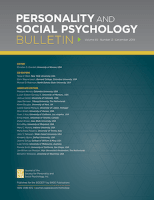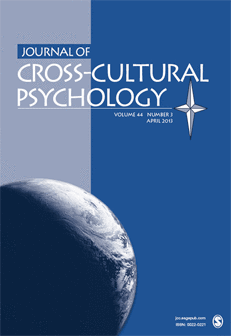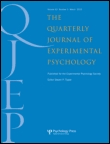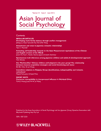
Psyecology-Bilingual Journal of Environmental Psychology-Revista Bilingue de Psicologia Ambiental
Scope & Guideline
Advancing Insights into Human-Environment Dynamics.
Introduction
Aims and Scopes
- Environmental Attitudes and Behaviours:
The journal explores the psychological underpinnings of environmental attitudes and pro-environmental behaviors, investigating how individual values, beliefs, and emotions influence actions towards the environment. - Impact of Socio-Demographic Factors:
Research often examines how socio-demographic variables such as age, gender, education, and cultural background affect environmental awareness and behavior, providing insights for tailored interventions. - Psychological Processes in Environmental Contexts:
The journal emphasizes the study of psychological processes, such as perception, cognition, and emotional responses, in various environmental contexts, including urban and natural settings. - Sustainability and Climate Change Communication:
There is a strong focus on effective communication strategies and behavioral interventions aimed at promoting sustainable practices and addressing climate change, emphasizing the role of psychological insights in these efforts. - Cross-Cultural Perspectives:
The journal often includes studies that reflect cross-cultural perspectives on environmental psychology, highlighting how cultural differences shape environmental attitudes and behaviors.
Trending and Emerging
- Climate Change and Sustainable Behavior:
There is an increasing emphasis on understanding the psychological factors that influence sustainable behaviors in the context of climate change, including studies on energy citizenship and climate communication. - Influence of Social Media and Greenfluencers:
Recent publications indicate a growing interest in the role of social media, particularly the influence of greenfluencers on consumer behavior, reflecting broader societal shifts towards digital engagement in sustainability. - COVID-19 and Environmental Connections:
The impact of the COVID-19 pandemic on environmental perceptions and behaviors has emerged as a significant theme, with research exploring how lockdowns and social isolation influence people's connection with nature. - Emotional and Psychological Well-Being in Natural Settings:
There is a notable trend towards investigating the relationship between psychological well-being and exposure to natural environments, highlighting the restorative effects of nature and its relevance during times of stress. - Normative and Contextual Influences on Environmental Behavior:
Emerging research is increasingly focusing on the normative and situational factors that shape environmental behaviors, suggesting a shift towards understanding behavior within specific social and contextual frameworks.
Declining or Waning
- Traditional Environmental Risk Perception:
Research focusing on traditional environmental risk perception, particularly in relation to natural disasters and industrial risks, has become less prominent, possibly due to the increasing emphasis on proactive and preventive measures rather than solely risk assessment. - Generalized Environmental Education:
There appears to be a decline in publications that broadly address environmental education without specific psychological frameworks or targeted behavioral outcomes, indicating a shift towards more applied and context-specific studies. - Historical Perspectives on Environmental Behavior:
Themes that delve into historical perspectives or retrospective analyses of environmental behavior are less frequent, suggesting a current preference for contemporary issues and immediate applications over historical context. - Psychometric Assessments of Environmental Attitudes:
The frequency of studies focused solely on psychometric evaluations of environmental attitudes without linking to behavioral outcomes has waned, reflecting a trend towards integrating psychological assessments with actionable insights.
Similar Journals

PERSONALITY AND SOCIAL PSYCHOLOGY BULLETIN
Advancing understanding of personality in social contexts.PERSONALITY AND SOCIAL PSYCHOLOGY BULLETIN is a premier journal dedicated to advancing the field of social psychology and personality research. Published by SAGE PUBLICATIONS INC and accessible since 1991, this influential journal delivers cutting-edge empirical studies, theoretical discussions, and critical reviews that are essential for scholars and practitioners alike. With an impressive impact factor and currently ranked in the top Q1 category in social psychology, the journal stands among the most respected resources within the discipline, boasting a Scopus rank of 21 out of 310, which places it in the 93rd percentile for psychology. Operating from its home in the United States at 2455 Teller Rd, Thousand Oaks, CA 91320, the PERSONALITY AND SOCIAL PSYCHOLOGY BULLETIN provides open access to its content, ensuring that critical research is widely available to the global academic community. As it continues to attract pioneering studies through 2024 and beyond, this journal remains a key platform for addressing the complex interactions between personality and social behavior, making it indispensable for anyone involved in psychological research.

ORGANIZATION & ENVIRONMENT
Bridging the gap between organizations and environmental responsibility.ORGANIZATION & ENVIRONMENT is a premier interdisciplinary journal published by SAGE PUBLICATIONS INC, dedicated to advancing the understanding of the complex interplay between organizational practices and environmental sustainability. With a strong impact, it holds a prestigious position in the top quartile (Q1) of Environmental Science and Organizational Behavior and Human Resource Management categories for 2023, showcasing its relevance and influence within these fields. The journal is indexed in Scopus, where it ranks 16th out of 230 in Organizational Behavior and Human Resource Management, and 25th out of 233 in General Environmental Science, reflecting its commitment to high-quality research. Despite being a subscription-based journal, it invites contributions that explore innovative methodologies and critical analyses addressing the pressing challenges at the intersection of organizations and environmental stewardship. Since its inception in 1987, ORGANIZATION & ENVIRONMENT has become essential reading for researchers, professionals, and students eager to contribute to the dialogue surrounding sustainable organizational practices and environmental ethics.

Nonlinear Dynamics Psychology and Life Sciences
Fostering Interdisciplinary Dialogue in Dynamic ResearchNonlinear Dynamics Psychology and Life Sciences is a leading journal published by the SOC CHAOS THEORY PSYCHOLOGY & LIFE SCIENCES, focusing on the intersection of nonlinear dynamics and psychological phenomena as well as their implications in life sciences. With an ISSN of 1090-0578 and an E-ISSN of 1573-6652, this journal stands out as a reputable source of innovative research and analytical studies that contribute significantly to the fields of applied mathematics and psychology. By delving into the complex behaviors and patterns of dynamic systems, the journal addresses vital contemporary issues, making it essential reading for researchers, professionals, and students alike. Although it operates on a traditional access model, the journal's insights are invaluable for understanding the empirical background behind nonlinear dynamics in psychological research. Recognized within the academic community for its contributions, it holds a 2023 Scopus ranking of #436 out of 635 in the Applied Mathematics category, placing it in the 31st percentile, and it is designated as Q3 in its quartile categorization. As a bridge between theoretical foundations and real-world applications, Nonlinear Dynamics Psychology and Life Sciences aims to foster interdisciplinary dialogue and inspire future research in this exciting and evolving field.

Revista CES Psicologia
Bridging theory and practice in diverse psychological fields.Revista CES Psicologia, initiated in 2018, serves as a crucial academic platform for the dissemination of psychological research within Colombia and beyond. Published by UNIV CES, this journal focuses on diverse areas of psychology, encompassing theoretical, empirical, and applied research, thus catering to a broad spectrum of interests in the psychological community. Although it currently holds a Q4 categorization in the field of psychology (miscellaneous) and ranks in the 19th percentile among general psychology in Scopus rankings, its commitment to fostering scholarly dialogue and contributing to the field makes it an important resource for researchers, professionals, and students alike. The journal's open-access model ensures that its valuable insights are readily available, encouraging collaborative knowledge creation and advancing research in psychology. Accessible from its headquarters in Medellin, Colombia, the Revista CES Psicologia is poised to continue contributing to the evolution of psychological sciences by promoting innovative research and discussions.

Psicologia Sociale
Driving Innovation in Psychological ResearchPsicologia Sociale is a prominent academic journal dedicated to the field of Social Psychology, published by SOC ED IL MULINO in Italy. With an ISSN of 1827-2517 and an E-ISSN of 2612-2006, this journal has been at the forefront of advancing research in social psychological theories and practices since its inception in 2006, with a convergence period extending to 2024. While it holds a respectable Q3 quartile ranking in Social Psychology and a Scopus rank of #209 out of 310, standing at the 32nd percentile, it provides a vital platform for scholars and practitioners to disseminate their findings and contribute to ongoing dialogues in the field. Although the journal does not provide open access options, it remains an essential resource for researchers, professionals, and students aspiring to deepen their understanding of social dynamics and psychological phenomena. With a commitment to rigorous peer-review processes and a diverse array of topics, Psicologia Sociale continues to significantly influence and shape contemporary discourse in social psychology.

JOURNAL OF CROSS-CULTURAL PSYCHOLOGY
Advancing Knowledge in Cross-Cultural PsychologyJOURNAL OF CROSS-CULTURAL PSYCHOLOGY, published by SAGE PUBLICATIONS INC, is a premier journal dedicated to the exploration and understanding of psychological phenomena across diverse cultural contexts. With an impressive impact factor reflective of its significance in the academic community, this journal ranks in the top quartile (Q1) for Anthropology, Cultural Studies, and Social Psychology, making it a vital resource for researchers and professionals alike. Spanning from its inception in 1970 to the upcoming year of 2024, the journal covers a wide array of topics that illuminate the nuances of human behavior and cultural interactions, supported by rigorous empirical research. It holds notable rankings in Scopus, including a remarkable 42nd position in Cultural Studies, ensuring its content reaches a high-impact audience. Researchers, students, and practitioners interested in the intersection of culture and psychology will find the journal invaluable for advancing their knowledge and contributing to this dynamic field.

QUARTERLY JOURNAL OF EXPERIMENTAL PSYCHOLOGY
Pioneering Discoveries in Human BehaviorQuarterly Journal of Experimental Psychology, published by SAGE Publications Ltd, is a leading peer-reviewed journal that serves as a vital resource in the fields of experimental and cognitive psychology, neuropsychology, and medicine. With an impactful contribution to psychological research, the journal is recognized for its rigorous methodology and empirical studies, holding a notable ranking among its peers—finding itself in the Q2 quartile across several categories. With its origin tracing back to 2006, Quarterly Journal of Experimental Psychology significantly influences the academic discourse until its latest published findings in 2024. Catering to a diverse audience of researchers, professionals, and students, this journal provides Open Access options, enhancing the reach and accessibility of cutting-edge psychological research. By focusing on innovative approaches and findings, it aims to bridge theoretical understanding with practical application, hence fostering advancement in multiple related disciplines. For those committed to understanding the complexities of human behavior and cognitive processes, this journal remains an essential reference point.

Psihologija
Exploring the Depths of Human BehaviorPsihologija is a distinguished academic journal published by the Association of Serbian Psychologists, dedicated to the field of Psychology. With an ISSN of 0048-5705, this journal has been an essential platform for scholarly communication since its inception, transitioning to an Open Access model in 2002 to ensure wider accessibility to its research findings. Recognized in the 2023 Scopus rankings as a Q3 journal in the miscellaneous category of Psychology, it aims to disseminate innovative and impactful research across various psychological disciplines. With a current Scopus rank of #132 out of 216, positioned within the 39th percentile, Psihologija serves as a vital resource for researchers, professionals, and students eager to advance their understanding of psychological science. Its commitment to fostering knowledge and collaboration makes it a crucial publication for anyone looking to explore contemporary issues and developments in psychology.

Nature Human Behaviour
Pioneering insights into the human experience.Nature Human Behaviour, published by Nature Portfolio in the United Kingdom, stands at the forefront of interdisciplinary research, connecting the fields of Behavioral Neuroscience, Experimental and Cognitive Psychology, and Social Psychology. With its commitment to publishing groundbreaking studies, this prestigious journal is categorized within the Q1 quartiles for 2023, indicating its elite status and significant influence in the academic community. Recognized globally with a remarkable Scopus ranking of #1 in multiple psychology and neuroscience categories, it showcases the highest quality research, thus appealing to students, professionals, and researchers alike. Despite being a subscription-based journal, its impactful scientific discourse continues to shape understanding of human behavior in social contexts. With the ambition to elucidate the complexities of human interaction and cognition, Nature Human Behaviour serves as an essential resource for anyone dedicated to advancing the realm of human behavioral sciences.

ASIAN JOURNAL OF SOCIAL PSYCHOLOGY
Unraveling Cultural Narratives Through Psychological InsightsASIAN JOURNAL OF SOCIAL PSYCHOLOGY, published by Wiley, stands as a pivotal resource in the field of social psychology, with a rich history that began in 1998 and extends to 2024. Operating under the ISSN 1367-2223 and E-ISSN 1467-839X, this journal is based in the United Kingdom and focuses on exploration and analysis of cultural and social dynamics within Asian contexts. With a notable Q2 ranking in Social Psychology and an impressive Q1 placement in miscellaneous Social Sciences as of 2023, it serves as a vital platform for disseminating high-quality research. Furthermore, its Scopus rankings highlight its significance, being ranked #44 in General Social Sciences and #95 in Social Psychology, reflecting its commitment to advancing scholarly dialogue and understanding. The journal does not offer open access, ensuring that published research maintains a curated quality and academic integrity, making it essential reading for researchers, professionals, and students keen to engage with contemporary issues in social psychology.